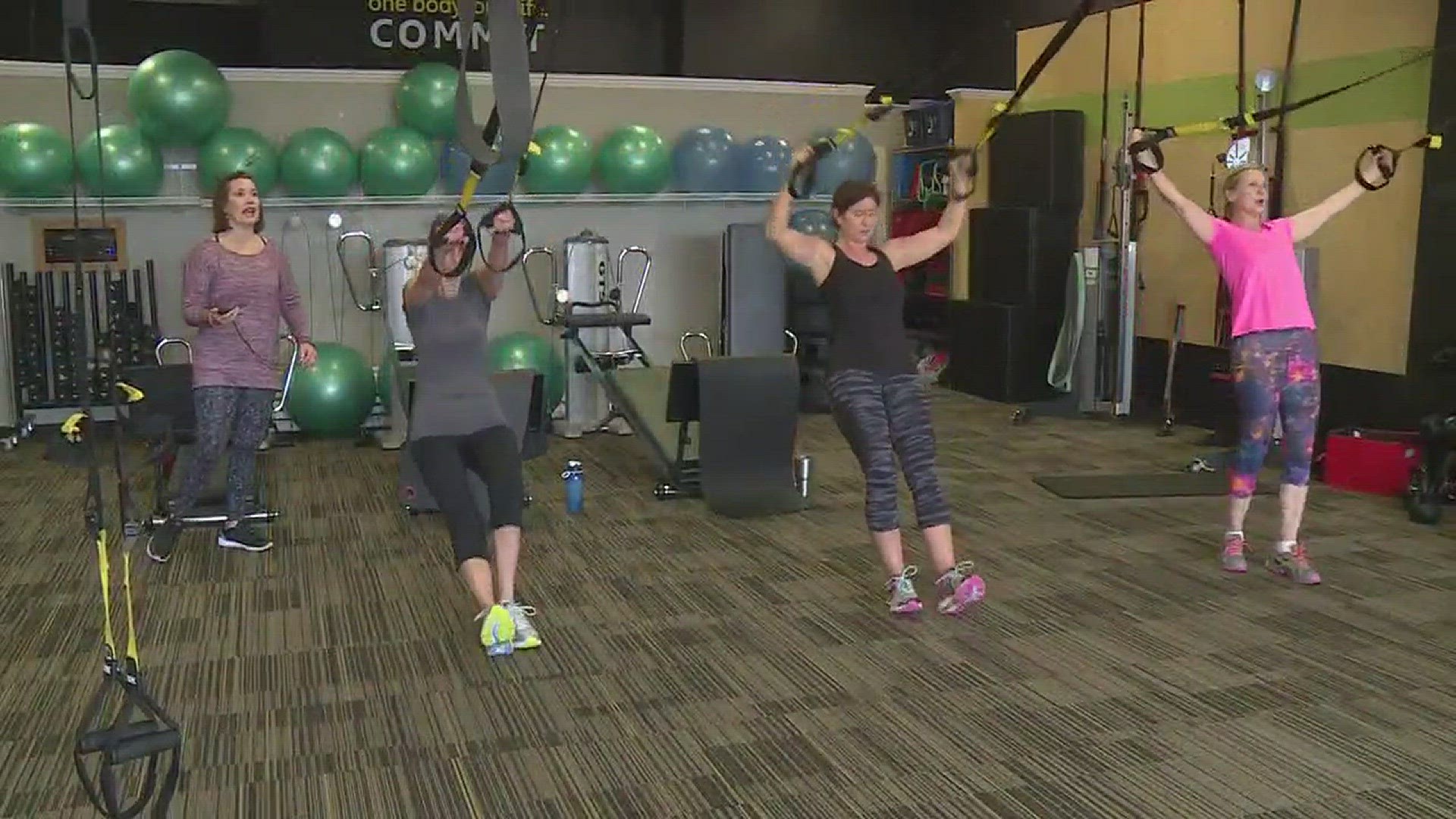NEW ORLEANS -- Many people go to the gym to work out their legs, abs, and arms, but now a local woman has found an important muscle area that is neglected.
It's causing personal problems that many women don't want to talk about.
Exercise physiologist and certified personal trainer Jennifer Lormand leads TRX classes in her Metairie gym. It's the same workout used by Saints quarterback Drew Brees after an injury. In fact, she's worked with his trainer. However, it was her complications and body changes from having three children that led her in a direction that you won't find in most gyms.
"I was dealing with those two things, nursing a baby, a hot mess down there. Like, what's going on?' said Lormand, owner of Ascension Fitness.
Over the years, Lormand has been through numerous health problems after deliveries and C-sections, from tears, urinary and fecal incontinence, a wide separation in her abdominal muscles, hernia, back pain, to extremely painful genital varicose veins.
"So with any extended exercise, I had chronic back pain, couldn't sleep, could not hold my baby, I mean, it was really impairing my ability to care for my child and be a mom," she remembers.
After surgery to repair the wide opening in her abdominal muscles, still more pelvic pain.
"Intuitively, I knew that something was wrong, but it's one of those things as a woman after having a baby, you don't want to look down there because you don't know what you're going to find," said Lormand.
Her bladder and uterus had prolapsed. The muscles and ligaments no longer held them in place completely inside of her body.
"I was stunned to learn that one in every nine women struggle with this, and one in every three women have pelvic floor dysfunction of some type," said Lormand.
She had already created the Mommy Movement program and wrote a book, 'New Baby New Body New Life,' but then at a fitness conference, she met the creator of The Pelvicore Pro, designed for Pelvic Core Training.
"I was in a workshop. I put it on, starting doing the exercises, and I was like, 'Oh my God. This really works.' I could feel the difference.'" she said.
Jenn now teaches the pelvic core classes and has teamed up with physical therapist Christina Walsh. She says, it's not only women with weak pelvic muscles after childbirth or C-section scar tissue that cause pain, it can be from a fall, car wreck or any surgical scar tissue. The injuries block the signal from the brain to those muscles and they get weak.
"The bones of the pelvis can get shifted and out of alignment, and what that does is it changes the way the muscles through that area are able to connect and fire," explained licensed physical therapist Christina Walsh, who practices a specialty called Integrative Manual Therapy at Ascension Fitness.
She uses this technique to realign the area and work through scar tissue.
"What that does is allow Jenn then, to get in there, get and really get those muscles turned on and firing, again to stabilize the hips and pelvis in that proper alignment," said Walsh.
Some class members, who are mothers, say it's helped.
"Definite improvement in my hips," said Lauren Noel, 39, a mother of two who works out in the class. "I was having pain in both sides at different times and that has helped resolve the pain a lot. It's definitely stronger. I don't have to worry about incontinence issues as much."
Others agreed.
"I have several friends who have had incontinence issues at my age, and so I'm incredibly thankful also that I found this class and this method because I have not," said class member Robin Goldsmith, 62, who is the mother of one.
Lormand said it appears she is reversing her prolapsed organ problems and hopes a medical reevaluation will show she won't need surgery. She's open about another way strengthening her pelvic muscles has helped, something many women experience but don't talk about.
"No pelvic pain with intimacy, which was a big deal. I'm not packing 12 pairs of underwear every time I have to go somewhere," said Lormand.
An expert in the Women's Pavilion at Ochsner Baptist said pelvic floor exercises can help some types of incontinence and pain, but for long term problems, its effectiveness is uncertain, especially if certain muscles are torn during delivery.
While pelvic floor therapy has not been shown to reverse pelvic organ prolapse outside of the body, it can help with symptoms of pressure. Doctors also encourage this exercise.

